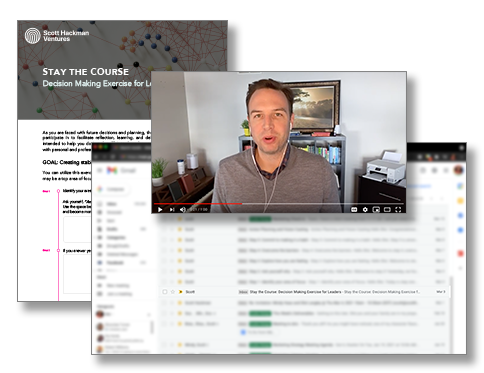If you are in a position of leadership, it’s likely that you have felt incredibly lonely at times. Being the person in charge is by its nature an isolating responsibility, and you may not feel you have anyone to talk to about the experience of leading and the loneliness of being at the top.
One of our values at SHV is acknowledging and welcoming the whole person, including inner thoughts and emotions. When you are leading, it may be inappropriate to share your feelings and concerns with those you lead, resulting in an intensified sense of loneliness as a leader. How is a leader to bring their whole self to work, if they must keep their struggles to themselves?
Leadership is Lonely
By its nature, a position of leadership tends to be a lonely place. Kets de Vries, a psychoanalyst who studied leadership problems, explained it well:
“Succession to the top leadership position in an organization is necessarily isolating in that it separates leaders from others (who now directly report to them) and leaves them without peers. As a result, their own normal dependency needs for contact, support, and reassurance rise up and overwhelm them…. The inability to test one’s perceptions, the tendency to lose touch with reality because one occupies a top position, is a danger anyone can fall victim to when in a leadership position.”
(Kets de Vries, 1989, pp. 6-7)
Connection with others is a human need, and the effects of not having that contact and support manifest in very real ways. Loneliness is a risk factor for high blood pressure, weight gain, depression, sleep problems, cognitive issues, and immune disorders. It is also, as Kets de Vries points out, a factor contributing to problematic and damaging leaders who spin out of control, self-destruct, or lose touch with reality.
Loneliness is often seen in new leaders, who can no longer connect with their former coworkers in the same way due to the hierarchy of the organization. Power imbalances prohibit the free sharing of feelings and struggles between leaders and those who now report to them.
In the vacuum left by this loss of connection, loneliness can rise up and start to strangle the new leader’s ability to maintain their own psychological health and perform their duties. It is crucial for leaders to understand that they are not alone in this experience, and that there is a possibility for connection with their new peers – other leaders.
Facilitated Peer Coaching: You are Not Alone
Facilitated Peer Coaching is an intentional space for leaders from different companies and organizations to come together, share their experiences and challenges, and learn from either being coached or watching a peer be coached regarding a specific issue they are facing.
The coachee is also offered the opportunity to receive feedback from the other leaders present. Those who are observing can find a sense of commonality and belonging among their peers. They also learn coaching skills from the coaching consultant and have a chance to reflect on the experience in relation to how they might implement coaching strategies in their own teams.
This type of peer coaching offers many benefits. The coachee has the option to learn from the shared intelligence of the assembled leaders. They also walk away with ideas and solutions regarding their current challenge. The observing leaders have a chance to watch coaching skills in real time and to discuss ways to apply these skills in coaching their own teams. Everyone gets the opportunity to share with others who are “at the top” and experience some relief from the sense of loneliness that often comes with leadership.
If you are interested in Facilitated Peer Coaching opportunities and other ways to connect with likeminded leaders, be sure to sign up for our newsletter.


Scott Hackman is the Founder and CVO of Scott Hackman Ventures. He has over 15 years of experience in business advising, coaching, and leading growth through transitions.
Meet Scott.



